The Billion-Dollar Startup Formula: Why AI-Driven Small Teams Are Beating Giants
The startup playbook is changing—AI is making tiny teams unstoppable. Forget hiring sprees—here’s how small, lean startups are winning big.
💡What if you didn’t need a massive team to build a billion-dollar company?
For decades, founders believed bigger teams = bigger success. More engineers. More sales reps. More overhead. But AI is rewriting the rules—and fast.
The new wave of startups is breaking all the old rules:
✅ Scaling with under 10 employees
✅ Closing huge funding rounds with lean teams
✅ Automating what used to require entire departments
Big companies should be worried. Small teams, powered by AI, are moving faster, cheaper, and smarter than their oversized competitors.
So, are small AI-driven teams the future of billion-dollar startups? Let’s find out.
Brought to you by Attio - The AI-native CRM
Attio is the CRM for the AI era. Connect your email, and Attio instantly builds your CRM—every company, contact, and interaction enriched and organized.
Automate email sequences, generate real-time reports, and leverage AI-powered workflows to streamline complex processes. Focus on what matters: building your company.
Trusted by Flatfile, Replicate, Modal, and more. Try the CRM built for the future—start a free Attio trial today.
Table of Contents
AI: The Equalizer for Small Teams
The Rise of the One-Person Billion-Dollar Startup
Challenges Smaller Teams Still Face
The Hybrid Model of the Future: Small, AI-Enhanced Teams
What Founders and Investors Need to Know
1. AI: The Equalizer for Small Teams
As we have seen already, from coming up with ideas to actually executing them, AI is enabling teams to do more with less, automating repetitive processes and offering tools they otherwise may not have had access to.
A Gartner survey revealed that by 2025, 85% of customer service leaders will explore or adopt conversational generative AI, or GenAI. This has reimagined how startups provide customer support. AI-powered chatbots, specifically GenAI tools modeled after OpenAI’s GPT, can handle up to 80% of routine tasks and customer service according to a report by IBM.
AI is also helping with smaller marketing teams. Platforms like HubSpot AI make marketing-related tasks a breeze by automating tasks email campaigns and social media posting. This enables these teams to manage comprehensive marketing strategies.
Increasingly, DevOps is becoming easier and easier with AI coding tools. Smaller engineering teams can now work more efficiently with tools like GitHub Copilot or Amazon Code Guru that assist developers by suggesting code snippets and automating routine programming tasks. These useful advancements in AI allow startups to allocate human resources to strategic initiatives, fostering innovation and rapid growth.
In addition, AI assistance democratizes access to sophisticated technologies, like data analysis and product design, enabling startups to compete with more established enterprises. AI data analysis tools analyze and interpret massive datasets, delivering insights by combining machine learning (ML), natural language processing (NLP), and large language models (LLMs).

These insights are valuable for descriptive and diagnostic analytics making it easier for smaller businesses to make more informed decisions and scale faster. AI data analysis can also streamline financial modeling tasks such as forecasting and budgeting, making it easier for startups only operating with a CFO.
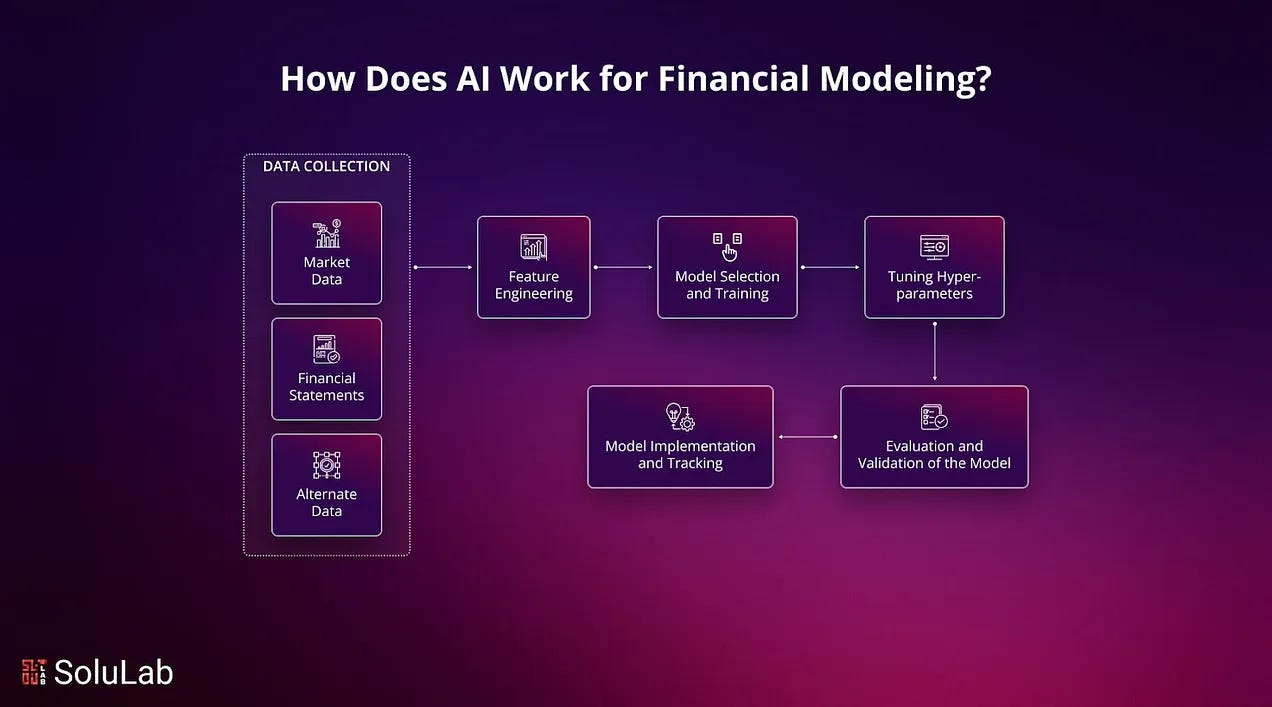
Beyond analysis and modeling, there are also AI tools for product design. Tools like Uizard help designers create and test prototypes saving time in the product design process. Regardless of the function, there are plenty of AI tools that can empower the smallest startups. Even those with little to no technical expertise can now use no-code and AI-assisted development platforms like Bubble.io and FlutterFlow to create and launch applications.
2. The Rise of the One-Person Billion-Dollar Startup
With AI tools giving teams of all sizes the ability to handle various business functions without expanding, industry heavyweights like OpenAI CEO Sam Altman are predicting that multiple one-person unicorns will emerge, highlighting AI's potential to amplify individual capabilities. According to Carta, solo founders have become an even larger share of the startup market, accounting for 35% of the 2024 class.
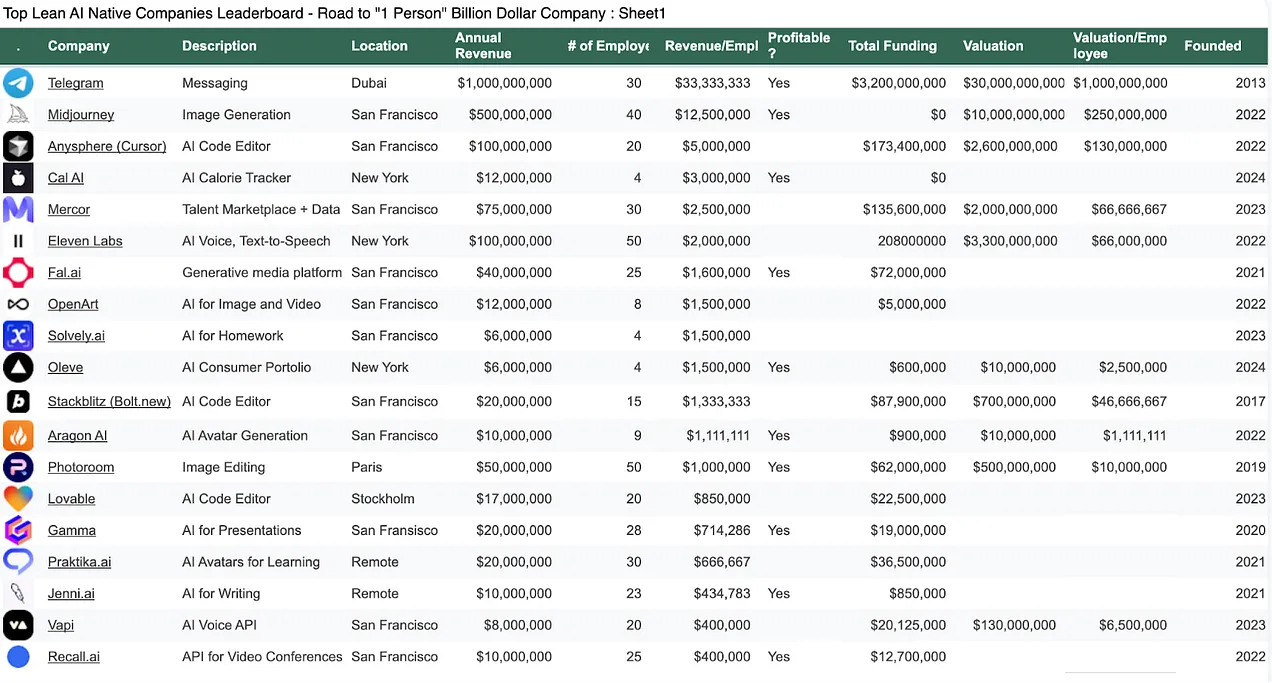
Consider “soonicorns” or soon-to-be unicorns like Testimonial and Seats.aero hitting $1.5M ARR as solo founder teams or BuiltWith hitting $14M/year with a single employee. It’s only a matter of time until these companies hit the billion-dollar mark. The one-person billion-dollar startup is surely less of a debate and more of an event in the making. These trends suggest that AI may help small teams and even individuals achieve unprecedented business success.
Lean Startups Taking the Lead
Lean teams are nothing new though, but they were very rare. Numerous startups in the past two decades have demonstrated that small, agile teams can achieve remarkable success, leveraging innovation and efficiency to compete with larger organizations.
Founded in 2009, WhatsApp operated with a lean team of 55 employees before its acquisition by Facebook for $19 billion in 2014.
Launched in 2010, Instagram had a team of just 13 employees when Facebook acquired it for $1 billion in 2012.
Craigslist
Operating with a team under 50, Craigslist has maintained a minimalist approach while becoming a leading classifieds platform.
Skyroot Aerospace
Founded in 2018 with a team of 10, it became the first private Indian company to launch a sub-orbital rocket.
AirPair
Launched in 2013 by a solo founder, it connected developers with experts for programming assistance, achieving profitability before expanding its team.
Rheaply
Started in 2015, it developed a virtual marketplace for laboratory equipment, growing from a small team to securing significant investments.
ClickFunnels
A bootstrapped SaaS company that helps entrepreneurs build landing pages, achieving rapid growth with a lean team.
Recent Examples of Small but High-Impact Startup Teams Dominating
recently compiled and launched a website to keep track of tiny teams in tech that are dominating. Here’s some of the most notable ones:
• Cursor by Anysphere: 0 to $100M ARR in 21 months with 20 people
• Bolt by StackBlitz: 0 to $20M ARR in 2 months with 15 people
• Lovable: 0 to $10M ARR in 2 months with 15 people
• Midjourney: 0 to $200M ARR in 2 years with 10 people
• Mercor: 0 to $50M ARR in 2 years with 30 people
• ElevenLabs: 0 to $100M ARR in 2 years with 50 people
• Aragon.ai: 0 to $10M ARR in 2 years with 9 people
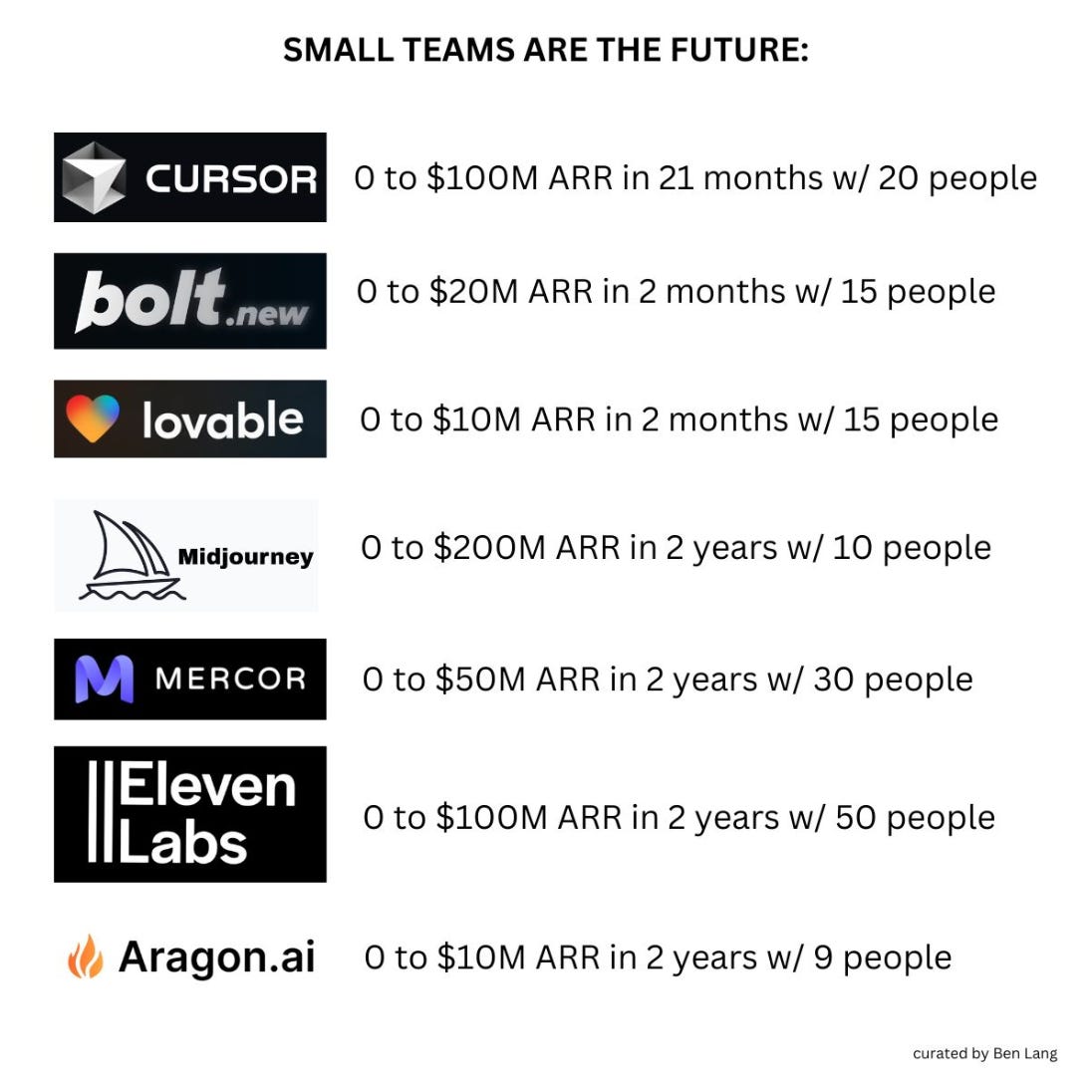
The Wave of AI-Powered Startups
With AI tools scaling startups left and right, many startups are innovating AI itself. Many AI-powered startups are making a difference in the fintech, e-commerce, healthcare, SaaS, and even defense-tech ecosystems.
AI Models and Automation
DeepSeek: A Chinese AI startup, DeepSeek developed an advanced AI model at a fraction of the cost incurred by industry giants.
Devin AI: Developed by a ten-member team at Cognition Labs, Devin AI is an autonomous artificial intelligence assistant capable of performing software engineering tasks.
Jentic: Jentic is developing a tool to connect AI agents, aiming to revolutionize automation. The company secured €4 million in pre-seed funding and plans to scale the team carefully, exemplifying the strategic growth of small AI startups.
Mistral AI: The lean team at Mistral AI has experienced rapid growth, releasing multiple AI models within its first year.
Personal AI (Human AI Labs): Founded in 2020, Personal AI offers AI technologies for personal productivity and communication. Their lean team has secured $12 million in funding.
Omneky: Established in 2018, Omneky utilizes machine learning to generate and test various ad creatives, analyze performance data, and optimize campaigns. The company's AI-driven platform allows small teams to manage comprehensive advertising strategies effectively.
Healthcare
Charta Health: Charta Health utilizes AI to automate patient chart reviews, aiming to improve revenue capture for healthcare providers and reduce administrative burdens. Their lean team achieved early profitability, attracting $8.1 million in seed funding.
Defense and Security
Rune: Founded by former Anduril employees, Rune is a defense technology startup that developed TyrOS, software designed to aid the military in managing field logistics more efficiently. With a small team, Rune secured $6.2 million in seed funding.
Edera: Edera focuses on enhancing cloud infrastructure security through innovative workload isolation technology. They successfully raised a $5 million seed round and a $15 million Series A led by Microsoft's venture fund, M12.
These examples underscore a significant trend in the startup ecosystem: small, focused teams, empowered by AI and innovative strategies, are achieving substantial success and challenging traditional business models.
3. Challenges Smaller Teams Still Face
Real-world businesses have proven that small, agile teams can drive innovation and efficiency, but it’s equally important to understand and acknowledge that they also face significant challenges.
While AI is enabling lean teams to achieve more, it’s still incapable of eliminating all of the fundamental challenges of growth, sustainability, and industry-specific needs. And whether small teams because the norm rather than the exception, is still up for debate.
The Challenge of Scalability
While AI tools can help a startup run operations, scaling still requires robust support systems, infrastructure, and operational capabilities. A survey revealed that 70% of small businesses struggle with scaling operations due to inadequate processes and inefficiencies. This is a reminder that AI can’t solve everything.
For example, AI-powered chatbots can handle routine interactions, but 75% of consumers still prefer human support. Startups that rely too much on automation risk losing customer trust and valuable opportunities to be innovative. Selling to large enterprises requires relationship-building, extensive onboarding, and compliance management, areas that AI alone cannot fully handle.
While AI can automate routine tasks, many complex areas like customer service, enterprise sales, and regulatory compliance often necessitate proper human intervention.
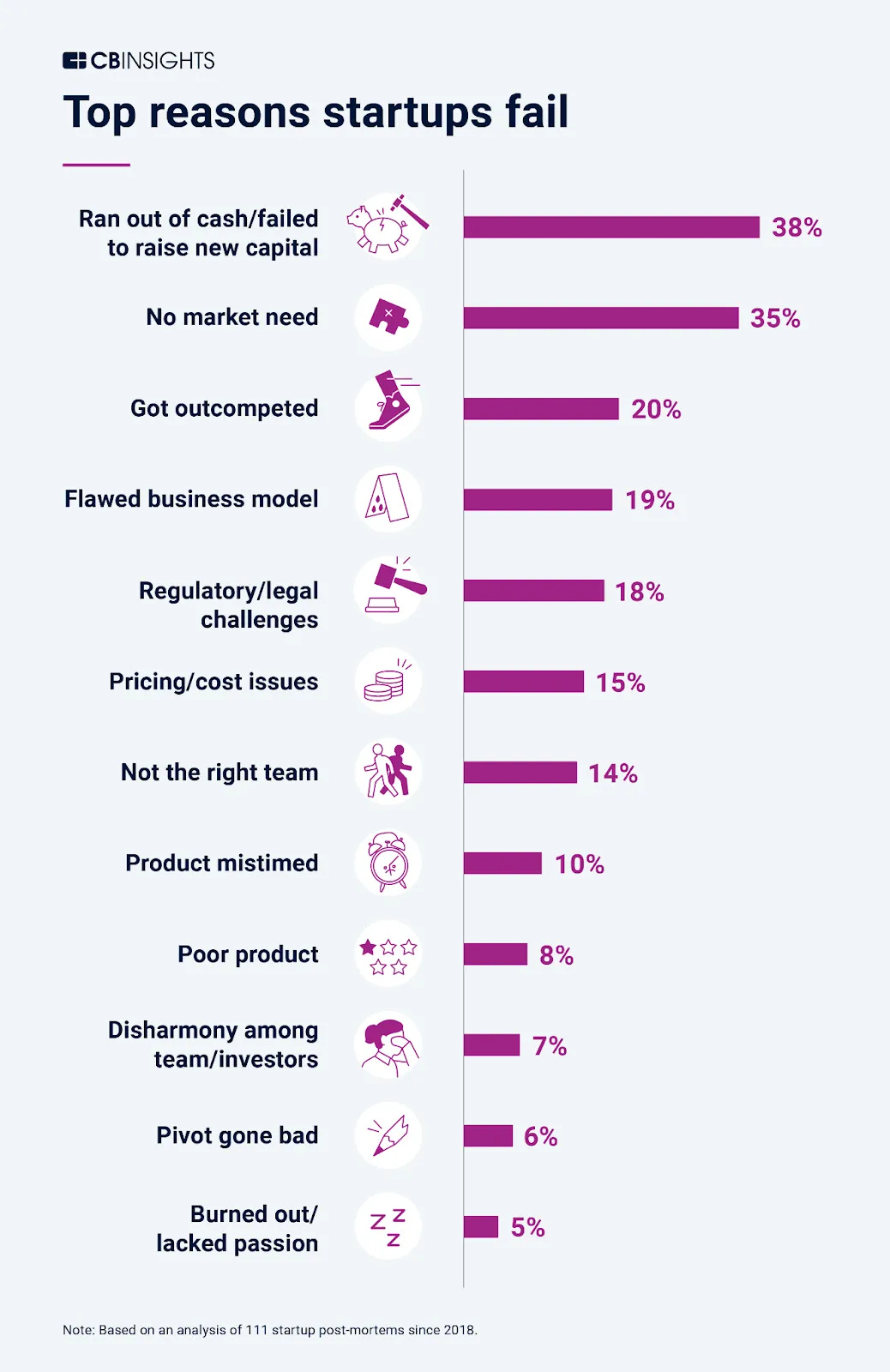
The Challenge of Burnout
Small teams often mean employees juggle multiple responsibilities. Although this creates a dynamic work environment, it also creates overwork, stress, and burnout. Startup Snapshot states that 72% of startup founders experience mental health issues. When burnout sets in, creativity and efficiency suffer, leading to slower execution, missed opportunities, and higher employee turnover, challenges that can cripple a lean team.
According to Blind surveys, employees at a startup average 50-60 hours per week, with some even working 80+ hours. A study by John Pencavel of Stanford University shows that productivity decreases after 50 hours of work yet startups tend to push forward past that threshold regardless.
The Challenge of Skill Gaps: A Result of Fewer Personnel
AI cannot replace deep industry expertise, sales acumen, or human judgment. Therefore, smaller workforces using AI are still susceptible to skill gaps.
Not only that, but leaner teams often work closely together, which can lead to limited perspectives and groupthink. Without fresh ideas from diverse voices, they may overlook market trends, customer needs, or potential risks. Expanding startup teams strategically requires hiring specialists, which is costly and time-consuming..
The Challenge of Larger Competition
Small teams may also struggle to compete with larger corporations due to limited resources. Larger companies, like Facebook and Instagram, outcompete smaller teams through acquisitions, expansive marketing budgets, and extensive workforces. Take Snapchat, the app that pioneered ephemeral stories, as an example. Instagram's larger team replicated and dominated the feature, leveraging a larger user base and surpassing Snapchat in a year.
And then there is always the threat of acquisitions. Speaking of Instagram, originally a tiny team startup, the app was acquired by Facebook in 2012 to allegedly suppress competition, according to Yale Insights. Large firms either acquire promising startups or launch aggressive counterproducts, limiting the standalone growth potential of small companies.
Industries That Aren’t “Lean-Friendly”
While AI has made small teams more powerful, certain industries still require significant resources and manpower. For example:
Biotech & Pharma: Drug development involves years of R&D, clinical trials, and regulatory approvals, requiring large, specialized teams.
Manufacturing & Hardware: Producing physical goods demands factories, supply chains, and logistics teams, making a fully lean model less realistic.
Cybersecurity & Deep Tech: Industries that require constant monitoring, compliance, and security updates cannot rely solely on AI automation.
Smaller businesses must also find ways to navigate challenges related to scalability, employee well-being, competition, and industry-specific demands to achieve sustained success.
4. The Hybrid Model of the Future: Small, AI-Enhanced Teams
As AI continues to evolve, startups are increasingly adopting hybrid models that blend lean human teams with AI capabilities. There are a few key ways to build a small, AI-enhanced team primed for success.
Knowing When to Leverage AI
By keeping startup operations efficient, AI frees up human talent to focus on big-picture goals. But knowing when to bring in more human expertise is just as important.
As startups expand, there are areas, like enterprise sales, compliance, and building strong customer relationships, where human skills shine. Research by McKinsey shows that companies blending AI with human decision-making are 20% more successful in rolling out AI projects. The key is finding the right balance between automation and human insight as you grow.
Structuring Small Teams to Avoid Pitfalls
To make the most of a hybrid approach, startups need to focus on creating effective team structures and remain vigilant of potential challenges.
Clear roles are key.
When each team member knows their responsibilities, small firms can use AI tools like ClickUp or Asana efficiently to get projects done without stepping on each other’s toes. This not only boosts productivity but also cuts down on unnecessary overlap.
Training is important.
Helping your team stay up-to-date with the latest AI advancements keeps your business competitive. A World Economic Forum report found that 94% of leaders expect employees to learn new skills on the job, especially as AI becomes more integrated into workflows.
Prioritize employee well-being.
Don’t forget to check in regularly with your team to avoid burnout. Using AI tools to manage workloads can help distribute tasks evenly and spot early signs of stress, keeping your team productive and healthy in the long run.
Networked Teams: Outsourcing or Partnering for Scale
Startups are increasingly turning to networked team models, keeping their internal teams small while outsourcing specific tasks or partnering with external experts to grow. This approach allows them to tap into specialized skills, like software development, marketing, or customer support, without stretching their core team.
Collaborating with other businesses also opens doors to shared resources and new markets. For example, a fintech startup might team up with an established bank to use its infrastructure while bringing innovative financial services to the table. By blending in-house teams with outsourced expertise, startups create a flexible structure that can quickly adapt to shifting business needs.
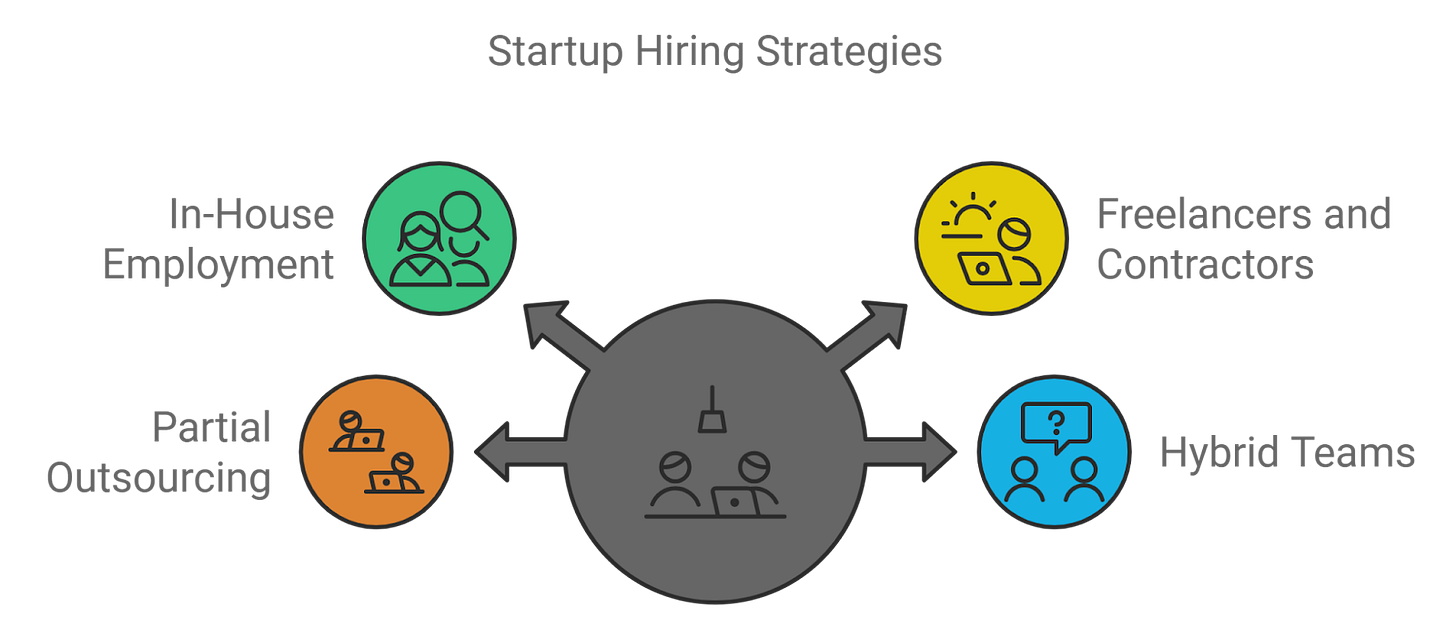
The future of startups is all about hybrid models; combining AI’s efficiency with human strategic insight. By building smarter, smaller teams and leveraging external resources, startups can innovate faster and scale efficiently in the competitive startup landscape.
5. What Founders and Investors Need to Know
While AI is a game-changer, it’s not a cure-all. Not every startup can succeed with a small team forever. Scaling still requires human expertise, smart hiring, and timely growth. Small teams excel at early innovation, but lasting success usually calls for structured scaling.
Founders need to balance efficiency with sustainable growth, avoiding premature expansion or staying too small for too long. Investors should assess whether a startup’s team structure matches its goals. The future favors those who can stay agile while building a foundation for scalable success.




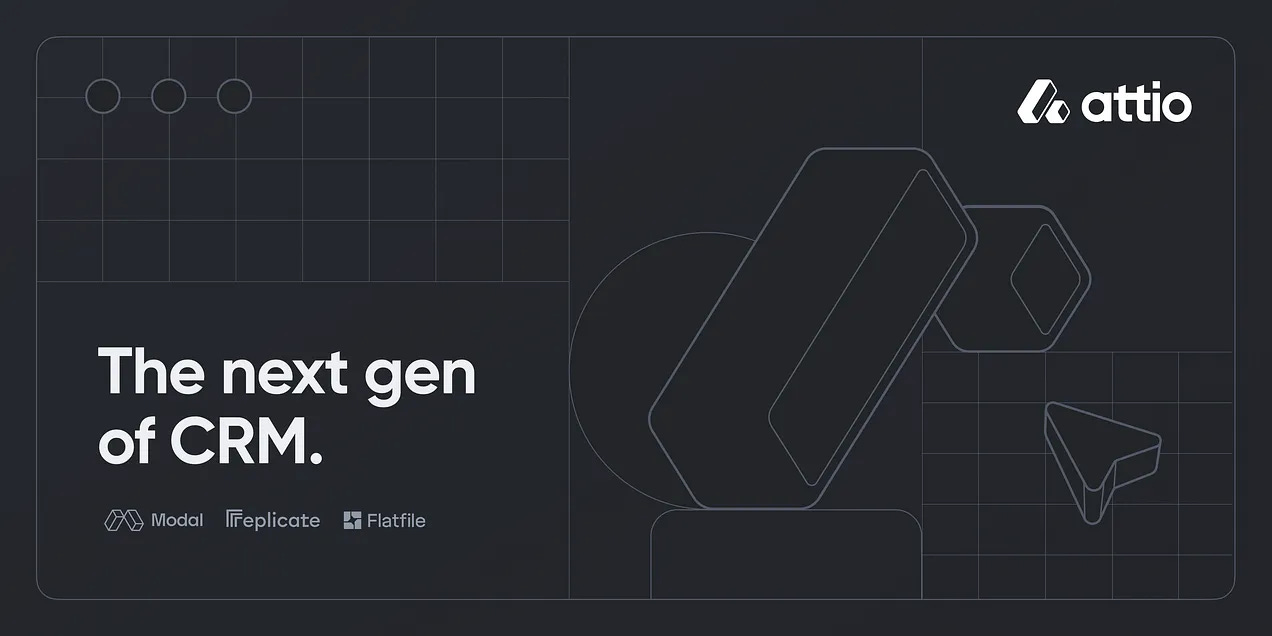


"Consider “soonicorns” or soon-to-be unicorns like Testimonial and Seats.aero hitting $1.5M ARR as solo founder teams or BuiltWith hitting $14M/year with a single employee."
We're going to be seeing a lot more introverted "Iron Man" soonicorn founders in the future: https://blog.inverteum.com/p/why-introverts-will-rule
Love it!